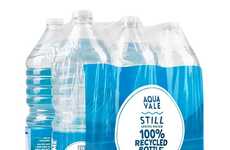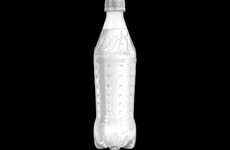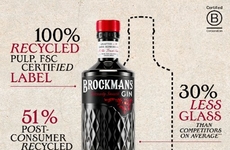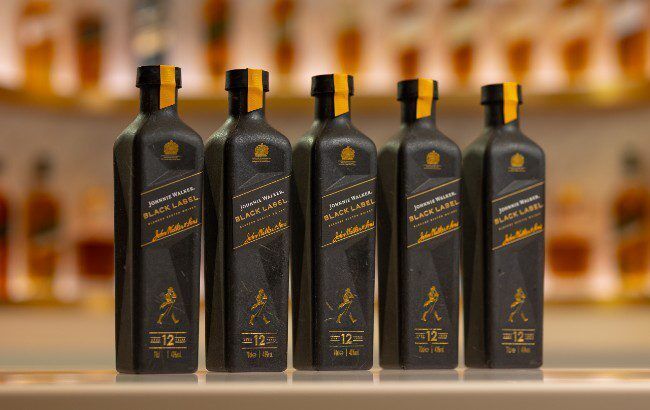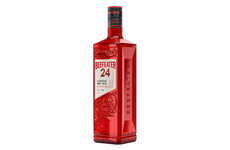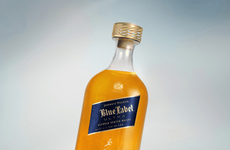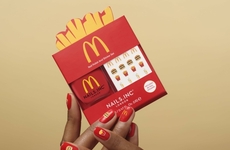
This Johnnie Walker Black Label Bottle is Made with 90% Paper
Michael Hemsworth — September 24, 2024 — Eco
References: johnniewalker & thespiritsbusiness
This new Johnnie Walker Black Label bottle has been created by the Diageo-owned brand as a sustainable packaging solution that makes use of an unlikely material: paper.
The bottle is positioned to be the first 700ml bottle that's made with 90% paper and a. thin plastic liner to give it a decidedly eco-friendly profile. The packaging is also reported to be 60% lighter than conventional glass, which will reduce carbon emissions across the product's lifecycle by 47%. The packaging doesn't need to be taken apart by the consumer for recycling to aid ease of disposal.
Global Brand Director Jennifer English spoke on the new Johnnie Walker Black Label bottle saying, "The paper-based bottle trial for Johnnie Walker Black Label marks a significant step forward in our journey. This test allows us to explore new packaging in the high-intensity environment of the on-trade. We are pioneering new packaging solutions and shaping the future of the industry.”
The bottle is positioned to be the first 700ml bottle that's made with 90% paper and a. thin plastic liner to give it a decidedly eco-friendly profile. The packaging is also reported to be 60% lighter than conventional glass, which will reduce carbon emissions across the product's lifecycle by 47%. The packaging doesn't need to be taken apart by the consumer for recycling to aid ease of disposal.
Global Brand Director Jennifer English spoke on the new Johnnie Walker Black Label bottle saying, "The paper-based bottle trial for Johnnie Walker Black Label marks a significant step forward in our journey. This test allows us to explore new packaging in the high-intensity environment of the on-trade. We are pioneering new packaging solutions and shaping the future of the industry.”
Trend Themes
1. Paper-based Packaging - The shift towards paper-based packaging exemplifies a move to more sustainable and eco-friendly materials in consumer products.
2. Lightweight Containers - Creating lightweight containers not only reduces shipping costs but also significantly lowers carbon emissions throughout the supply chain.
3. Recyclable Design - Designing packaging that does not require disassembly for recycling enhances user convenience and boosts recycling rates.
Industry Implications
1. Alcoholic Beverages - The move to paper-based bottles in the alcoholic beverages industry indicates a growing commitment to sustainability and eco-conscious consumers.
2. Sustainable Packaging - Innovations in sustainable packaging are redefining standards and practices across multiple sectors, driven by environmental mandates.
3. Recycling Solutions - Advancements in recycling solutions that focus on ease of disposal and material reuse are critical in reducing environmental impact.
8.2
Score
Popularity
Activity
Freshness

